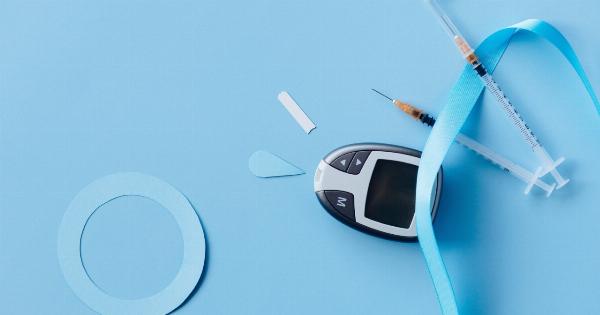Living with diabetes can be a challenging experience. For many, it involves closely monitoring their blood sugar levels, taking medications and experiencing lifestyle modifications.
Despite these efforts, diabetes can still lead to a host of complications including damage to the kidneys, eyes, and heart, as well as nerve damage and poor circulation in the extremities. However, there is hope on the horizon. A new treatment for diabetics is currently under development that aims to balance insulin levels in the body and provide an alternative to traditional insulin therapy.
The Problem with Traditional Insulin Therapy
For many diabetics, insulin therapy is the primary way to manage their disease. However, traditional insulin therapy brings with it a host of challenges and drawbacks.
Insulin injections must be administered every day, and at specific times, to keep blood sugar levels in check. This can be both time-consuming and inconvenient for many diabetics, particularly those who are still working full-time or who have busy schedules. Furthermore, injections can be painful and cause skin irritation, bruising, and other complications.
Lastly, injections are not always effective, and many diabetics have difficulty maintaining their blood sugar levels even with regular injections.
The Solution: A Revolutionary New Treatment
A new and innovative approach to diabetes management has been proposed that aims to eliminate these challenges and provide an alternative to traditional insulin therapy.
The treatment is designed to balance insulin levels in the body naturally by eliminating the need for insulin injections altogether.
At the heart of this new treatment is a discovery about the role that a specific hormone called FGF21 plays in diabetes management.
FGF21 is a hormone that is typically found in small amounts in the liver, but that can be artificially increased through the use of drugs. When FGF21 is present in the body, it appears to provide a natural balancing effect on insulin levels, and can help to reduce blood sugar levels without the need for insulin injections or other medications.
How the Treatment Works
Based on this discovery, the proposed new treatment involves administering FGF21 to patients with diabetes, either through an injection or orally.
The FGF21 would then work in the body to help regulate insulin and blood sugar levels, thus providing an alternative to traditional insulin therapy.
The research behind this new treatment is still in the early stages, but early results have been promising.
Initial animal studies have shown that this approach is effective in providing a natural balancing effect on insulin levels, and that it can help to reduce blood sugar levels without the need for insulin injections or other medications.
What the Future Holds
The potential for this new treatment is immense, and it could represent a significant breakthrough in diabetes management.
If successful, it could provide an alternative to traditional insulin therapy that is more convenient, less painful, and more effective at regulating blood sugar levels. This could lead to a significant improvement in the quality of life for millions of diabetics worldwide.
Despite the initial promise, there are still challenges to be overcome.
Further studies are needed to determine the safety and efficacy of this new treatment in humans, and more work will need to be done to develop effective delivery systems for the FGF21 hormone. Nevertheless, the potential for this new breakthrough provides hope for a future where diabetics can enjoy a more manageable and less stressful life.
Conclusion
The discovery of the role that FGF21 plays in diabetes management is a significant breakthrough, and the potential for the new treatment that has been proposed is immense.
If the research can be successfully translated into effective treatments, then this could represent a new era in diabetes management, and could provide hope to millions of patients worldwide. While there is still work to be done, the promise of this new approach is exciting, and provides hope for patients and their families who are living with the challenges of diabetes every day.





























